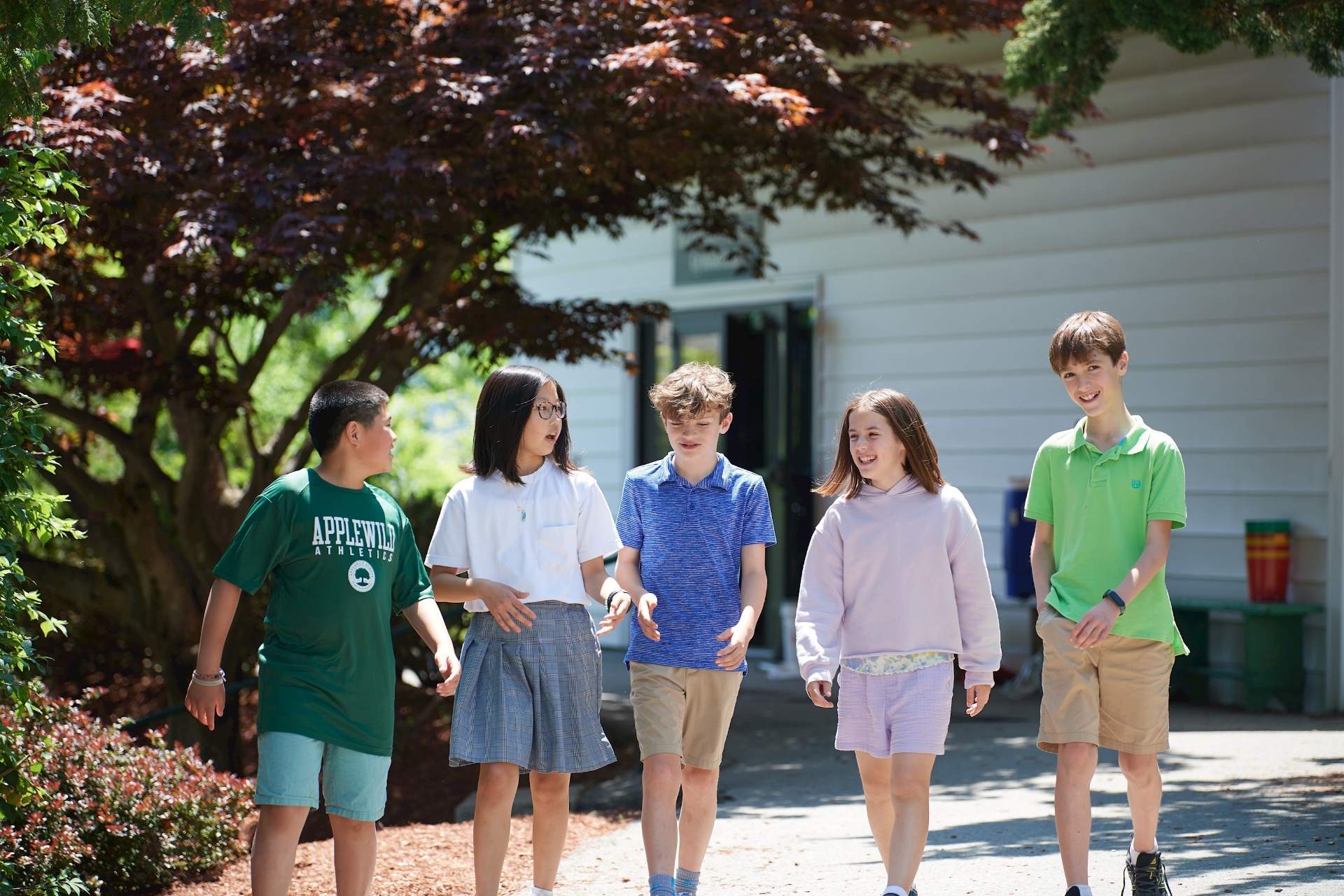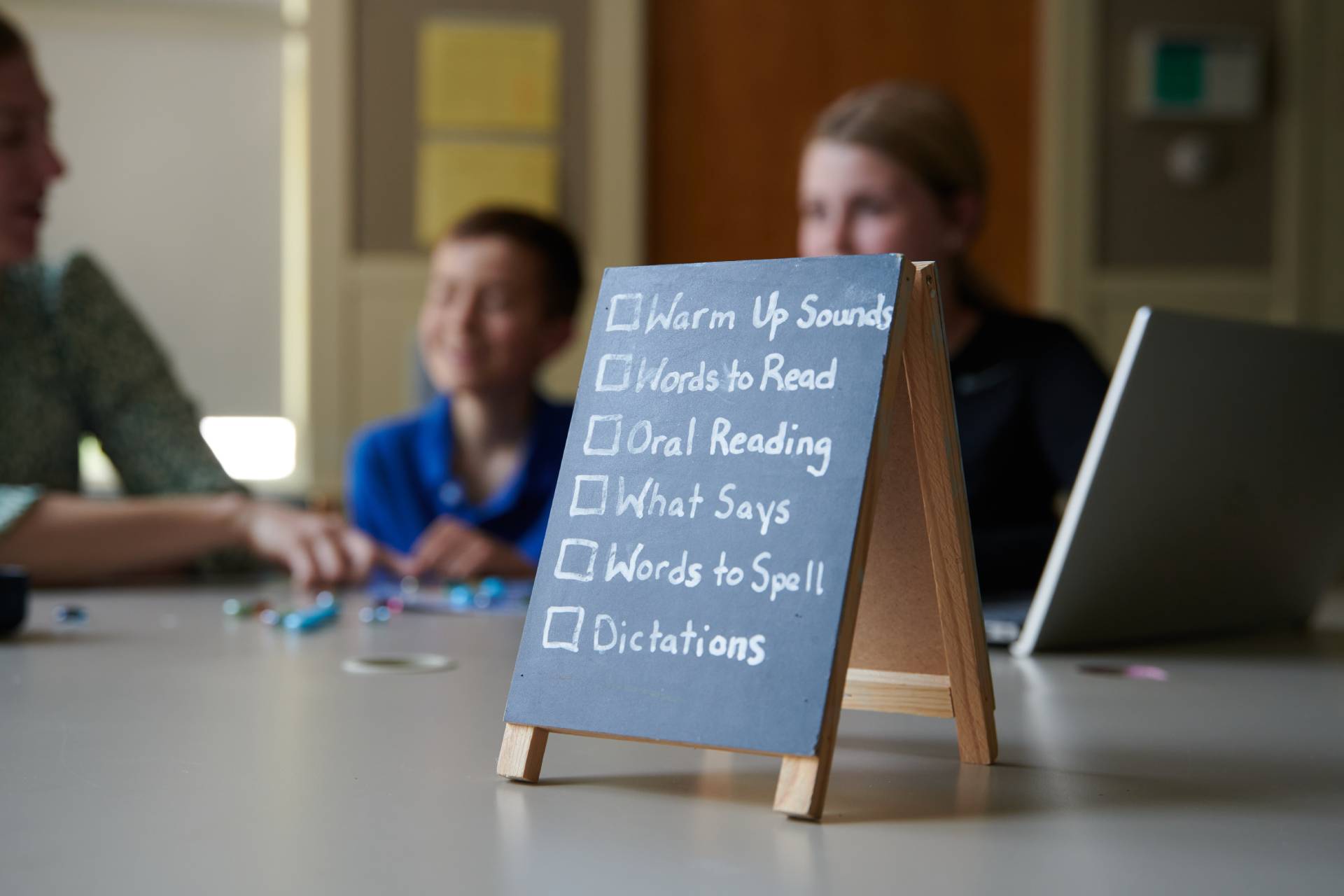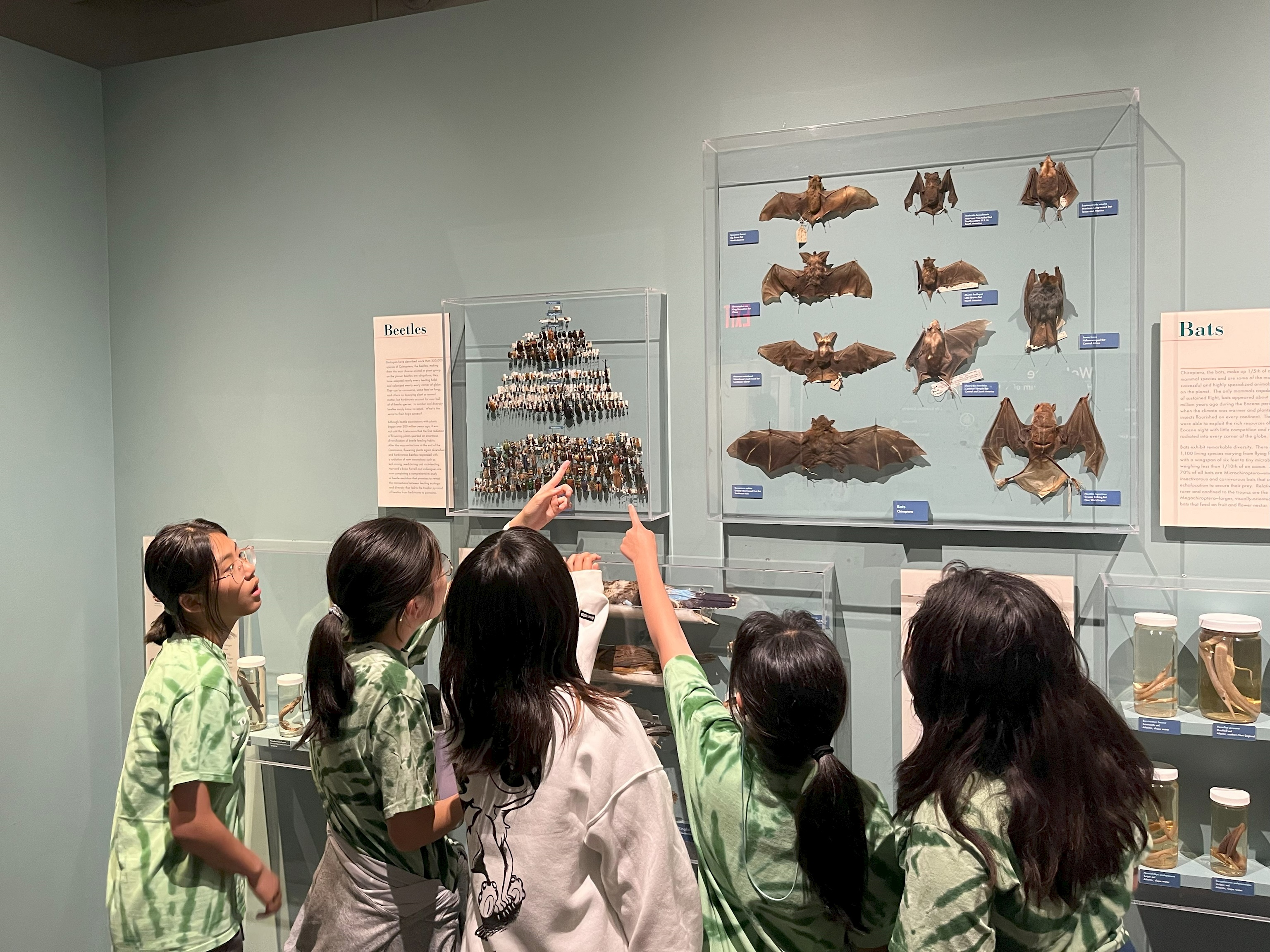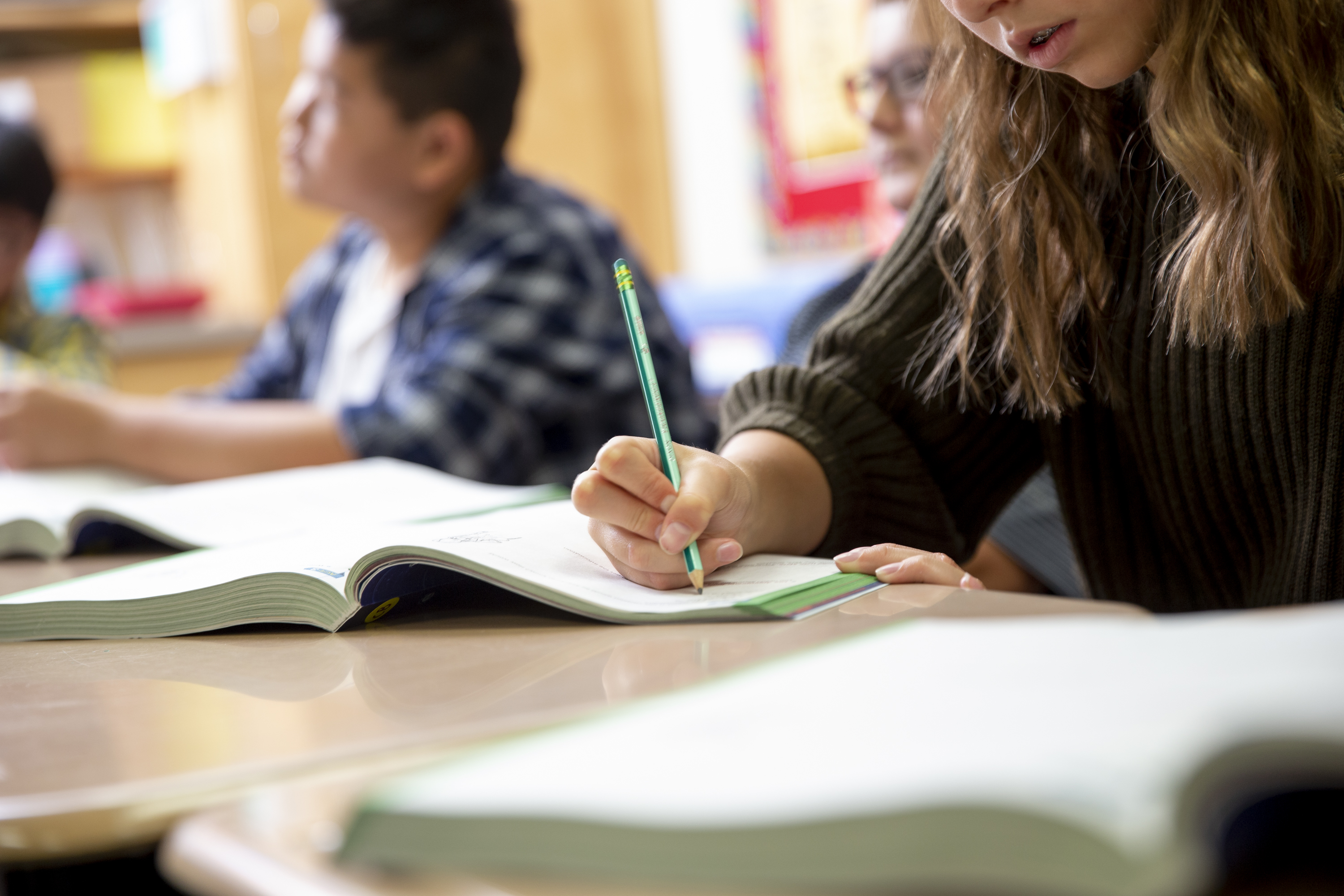January 18, 2022
By Amy Jolly, Head of School
Middle school is a time of explosive growth and intense awkwardness for many. If we pause and reflect on our own middle school experiences, most of us would inwardly cringe at remembering. The hormones are flowing and development is uneven across boys and girls at this age. Friendships which seemed secure in fifth grade are abandoned in sixth grade causing great anxiety. Girls and boys begin to be interested in each other as more than friends. It is not uncommon for adolescents to explore their gender and sexual identity while clarifying their interests and talents overall.
Because it is a physically and emotionally tumultuous time, sometimes we forget the important academic development which occurs in middle school. Middle school is the “last chance” to develop the study skills and habits necessary to successfully pursue a challenging secondary school program. Once high school starts, all those grades “matter” so middle school is a chance to shore up skills that may still be wobbly.
By the end of middle school, a student generally has fixed ideas about themselves as a student (e.g. “I’m not good at math” or “I hate writing”), so we have a precious few years to shift their thinking and build the skills needed in high school and beyond. Middle school students are developing the internal narrative of “what are my strengths, weaknesses, and what do I do about all this?” Small student-centered Junior Boarding schools capitalize on this complex developmental phase so our students will understand what is challenging for them, how to overcome these challenges, and become ready for secondary school.
A Reset, A Fresh Start
Schools that offer residential programs for middle school students, or “Junior Boarding”schools, offer families an opportunity to help their early adolescents reset academically. Private junior boarding schools offer five and seven day residential options that are tailored to the unique academic and social-emotional needs of students who are ten to fourteen years old. We find that one reason families choose junior boarding schools is that the child’s current school just isn’t working well enough. Knowing how formative these years are, families make a calculated investment in a fresh start at an independent junior boarding school.
While there are a range of junior boarding programs, all culminate in the ninth grade. This focus on early adolescence, without the interference or pressure of older teens, provides students extraordinary educational and personal development opportunities. Parents may worry that their child is too young to be away from home, but the junior boarding school calendar allows for ample long weekends and vacations so it will feel more akin to having a child away at summer camp. If a family chooses a five-day boarding option, the student will come home every Friday night and return Sunday evening. We find that video conferencing applications like Zoom also allow for connectedness on a daily basis if desired. Some students experience mild homesickness but quickly pivot to enjoying being more independent. Junior boarding schools provide the right balance of structure with nurture so our students find academic and social success—and love being at school!
Academic Interventions That Work
Junior boarding schools offer a range of personalized options to help each student find success. For many junior boarding students, simply participating in daily evening study halls where dorm parents — all of whom serve on our faculty — circulate to refocus, support, and encourage students for 60-90 minutes is sufficient structure to promote significant academic growth. Students are motivated by the clear expectations set by our adult team, but also by positive peer pressure of seeing their friends buckling down and getting their work done nightly.
For those who need additional support, personalized tutorials are available during the school day, or during the evening study hall. At Applewild, these tutorials are provided by the Center for Learning Support that connects students with learning specialists who help them meet their specific learning challenges. Some students need organizational and executive functioning support, some need math remediation, while others need tailored help with writing.
Sometimes a student’s learning challenges come from a diagnosed learning disability, and other times the challenges may be due to previous school switches, a poor match between a teacher or school and a student’s learning style, or most recently, deficits caused by the pandemic. In these cases, we can help a student catch up by creating individualized math and writing programs.
For those who struggle with dyslexia or dysgraphia, we offer Foundations at Applewild, a language-based classroom that includes daily 1:1, structured, multisensory, and sequential instruction (oftentimes Orton-Gillingham). Foundations at Applewild students often find the additional structure provided by our residential program eases frustrations and allows a student to receive the structured, sequential, and research-based instruction that meets their specific needs.
For students who are non-native English speakers, we offer English Language Learning classes and tutorials. These small instructional groups, often 2-5 students in each, are leveled to accelerate each students’ acquisition of spoken and written English.
While junior boarding schools generally offer accelerated academic programs as a standard offering, there are students who require individualized accelerated instruction for giftedness. Oftentimes this is accomplished by giving a student an individualized class!
Intense Academic Intervention + Co-Curriculars = Happy Students
The beautiful thing about living at school and taking advantage of these academic interventions is that a student is never pulled from the elements which make school pleasurable. All students participate in our sports program, and enjoy arts and school traditions. As a private school that has long valued the liberal arts tradition, we offer studio art, ceramics, Building/Engineering, Robotics, Drama, and several music options. Our club program gives students many choices to pursue their interests and passions while making friends from across the grades. Some recent clubs include: Math Team, Stage Fighting/Boffer Swords, Cooking, Ukulele Band, and Board Games.
If parts of a student’s academic day are really challenging for them, they can look forward to sports, arts, and clubs for stress-management and fun. From a parent perspective, giving one’s child the gift of an immersive educational experience that meets their unique learning needs removes stress from the parent-child relationship, and allows the child to gain independence and make friends with children from around the world. Junior boarding programs offer high-structure and high-nurture environments which allow students to find academic success while finding themselves.
Your Child Isn’t a Number
Junior boarding schools won’t treat your child like a “number,” but instead offer many adults to intensively support their educational journey. In addition to classroom teachers, coaches, school counselors, and learning support staff, residential life associates (“dorm parents”) and advisors carefully monitor each students’ social-emotional well being and guide their academic progress.
Residential life associates live on campus and teach in the school so they are in a unique position to help students navigate any difficulties that arise during their days. These adults serve in teams of two and they are supervised by the Dean of Student Life who lives on campus as well. Our dorm parents are caring people who have specifically chosen to serve as role models and guides for the hours a student isn’t in class.
It is common for junior schools to organize students into advisories of 5-8 students in each grouping. At Applewild, our students meet with their advisors twice a week, once for a normal class meeting and they eat lunch together once a week as well. We have a social-emotional curriculum that focuses on helping students acquire the social skills needed for adult life. This includes stress management, navigating friendship skills, and learning to appreciate each of our unique strengths and differences. The advisor watches out for their advisees and helps them navigate whatever problems they may have, whether that is talking to another teacher in a subject where they are struggling, recovering from a social misstep, or encouraging them to try out for the winter play! The advisor is an adult friend who helps mentor each student personally so they feel known and safe at school.

.jpg)






.png)
